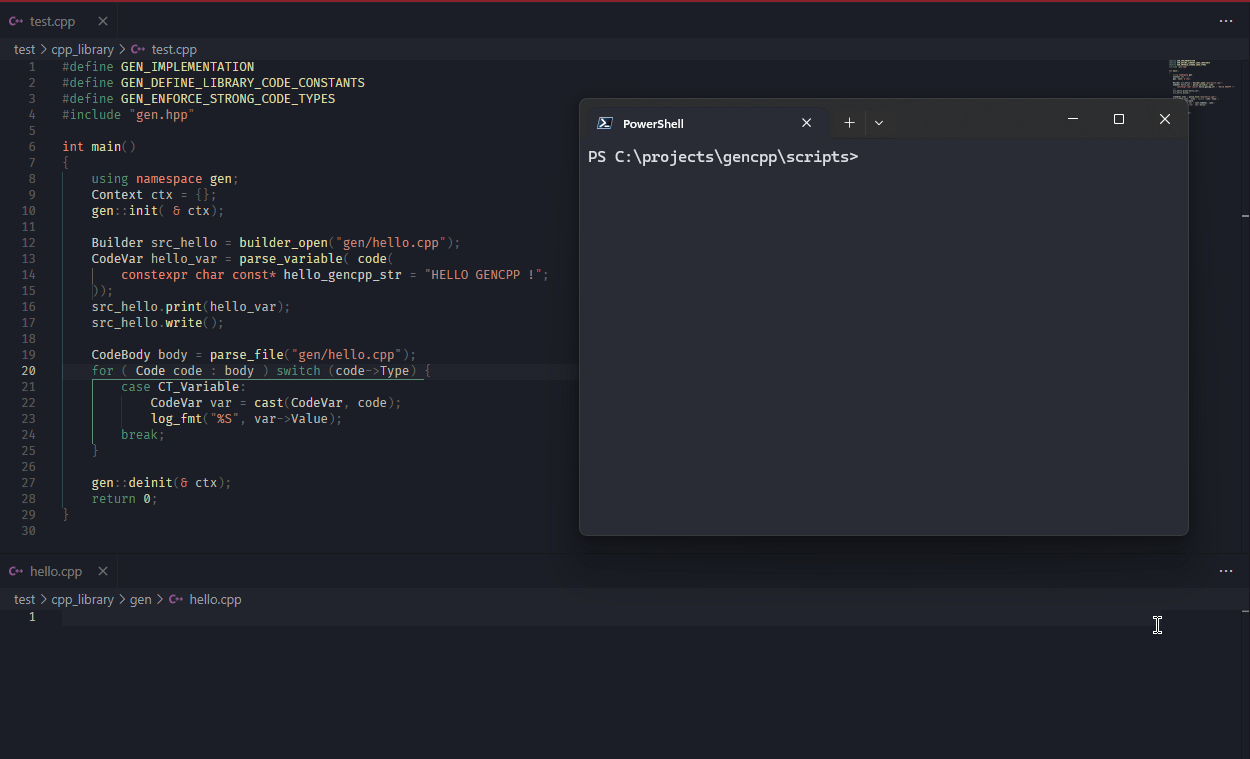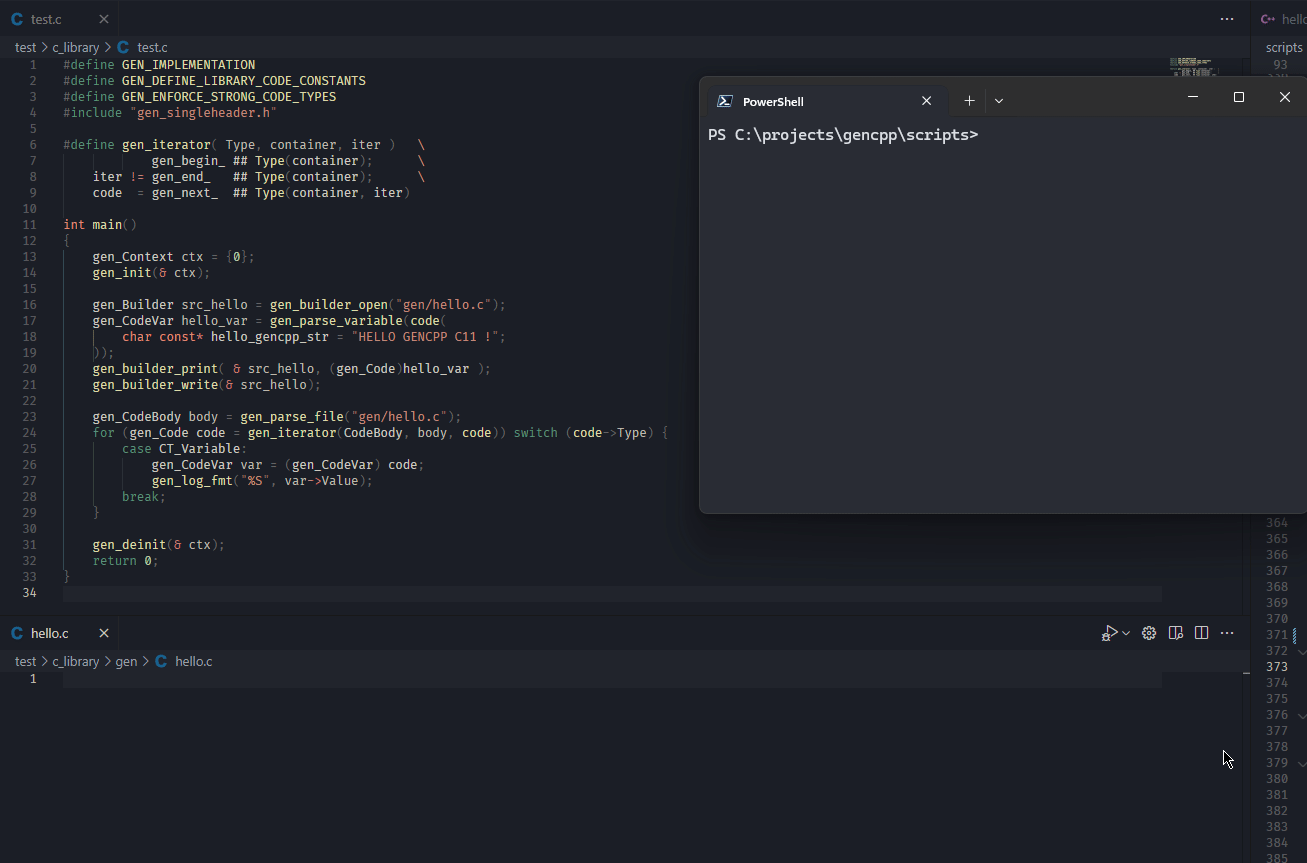Lexer tokens now tracked using TokenSlice. ParserContext as the id for current token during traversal. Last progress on errors needs updates to interface.parsing.cpp Not adding message support yet as that will need to revamped with the logging, right now just focused on getting both lexer on parser to use proper info data structures. Thinking of separating ParseContext from the general lib Context, plan is to just have the parser context have its allocator and other references it needs. So there will seem to be redundant parameter passing to some procedures for now. The big endgoal of this other than the parser's compression is the ability to support mult-threading. Immediate concern other than making sure everything necessary is only within ParseContext, etc is things related to logging, or otherwise that is not thread dependent. Those can get guarded but I don't have full intuition on what will have that (most likely the library's provided allocator/s as well will need guards introduced). I'll concern myself more with charting those out once things are at least lifted properly. Worst case a trivial situation can be achived by the user by just abusing multiple contextes/allocators/etc as we already have in place.
gencpp
An attempt at simple staged metaprogramming for C/C++. Reflect and generate code for your codebase at runtime!
The library API is a composition of code element constructors, and a non-standards-compliant single-pass C/C++ parser.
These build up a code AST to then serialize with a file builder, or can be traversed for staged-reflection of C/C++ code.
This code base attempts follow the handmade philosophy.
Its not meant to be a black box metaprogramming utility, it should be easy to integrate into a user's project domain.
Langauge Bindings
- gencpp-odin: Bindings for the odin programming language.
Utility Libraries
- UnrealGencpp: Setup as a plugin to integrate into Unreal Engine or Unreal Projects.
Documentation
- docs - General: Overview and additional docs
- AST_Design: Overview of ASTs
- AST Types: Listing of all AST types along with their Code type interface.
- Parsing: Overview of the parsing interface.
- Parser Algo: In-depth breakdown of the parser's implementation.
- base: Essential (base) library.
- gen_c_library: C11 library variant generation (single header and segmented).
- gen_segmented: Segmented C++ (
gen.<hpp/cpp>,gen.dep.<hpp/cpp>) generation - gen_singleheader: Singlehader C++ generation
gen.hpp - gen_unreal_engine: Unreal Engine thirdparty code generation.
Notes
This project is still in development (very much an alpha state), so expect bugs and missing features.
See issues for a list of known bugs or todos.
The library can already be used to generate code just fine, but the parser is where the most work is needed. If your C++ isn't "down to earth" expect issues.
A natvis and natstepfilter are provided in the scripts directory (its outdated, I'll update this readme when its not).
Minor update: I've been using RAD Debugger with this and the code structures should be easy to debug even without natvis.
Usage
A metaprogram is built to generate files before the main program is built. We'll term runtime for this program as GEN_TIME. The metaprogram's core implementation are within gen.hpp and gen.cpp in the project directory.
gen.cpp `s main() is defined as gen_main() which the user will have to define once for their program. There they may reflect and/or generate code.
In order to keep the locality of this code within the same files the following pattern may be used (although this pattern isn't the best to use):
Within program.cpp :
#ifdef GEN_TIME
#include "gen.hpp"
...
u32 gen_main()
{
gen::Context ctx;
gen::init(& ctx);
...
gen::deinit(& ctx);
return 0;
}
#endif
// "Stage" agnostic code.
#ifndef GEN_TIME
#include "program.gen.cpp"
// Regular runtime dependent on the generated code here.
#endif
The design uses a constructive builder API for the code to generate.
The user is provided Code objects that are used to build up the AST.
Example using each construction interface:
Upfront
Validation and construction through a functional interface.
CodeTypename t_uw = def_type( name(usize) );
CodeTypename t_allocator = def_type( name(allocator) );
CodeTypename t_string_const = def_type( name(char), def_specifiers( args( ESpecifier::Const, ESpecifier::Ptr ) ));
CodeStruct header;
{
CodeVar num = def_variable( t_uw, name(Num) );
CodeVar cap = def_variable( t_uw, name(Capacity) );
CodeVar mem_alloc = def_variable( t_allocator, name(Allocator) );
CodeBody body = def_struct_body( args( num, cap, mem_alloc ) );
header = def_struct( name(ArrayHeader), { body });
}
Parse
Validation through ast construction.
CodeStruct header = parse_struct( code(
struct ArrayHeader
{
usize Num;
usize Capacity;
allocator Allocator;
};
));
Untyped
No validation, just glorified text injection.
Code header = code_str(
struct ArrayHeader
{
usize Num;
usize Capacity;
allocator Allocator;
};
);
name is a helper macro for providing a string literal with its size, intended for the name parameter of functions.
code is a helper macro for providing a string literal with its size, but intended for code string parameters.
args is a helper macro for providing the number of arguments to varadic constructors.
code_str is a helper macro for writing untyped_str( code( <content> ))
All three construction interfaces will generate the following C code:
struct ArrayHeader
{
usize Num;
usize Capacity;
allocator Allocator;
};
Note: The formatting shown here is not how it will look. For your desired formatting its recommended to run a pass through the files with an auto-formatter.
(The library currently uses clang-format for formatting, beware its pretty slow...)
Building
See the scripts directory.
Gallery
Listing definitions in the Cuik Compiler
https://github.com/user-attachments/assets/2302240c-01f1-4e1b-a4b5-292eb3186648
Unreal: Generating a UAttributeSet from a UDataTable
https://github.com/user-attachments/assets/2a07b743-825d-4f9f-beaf-3559e8748a4d

